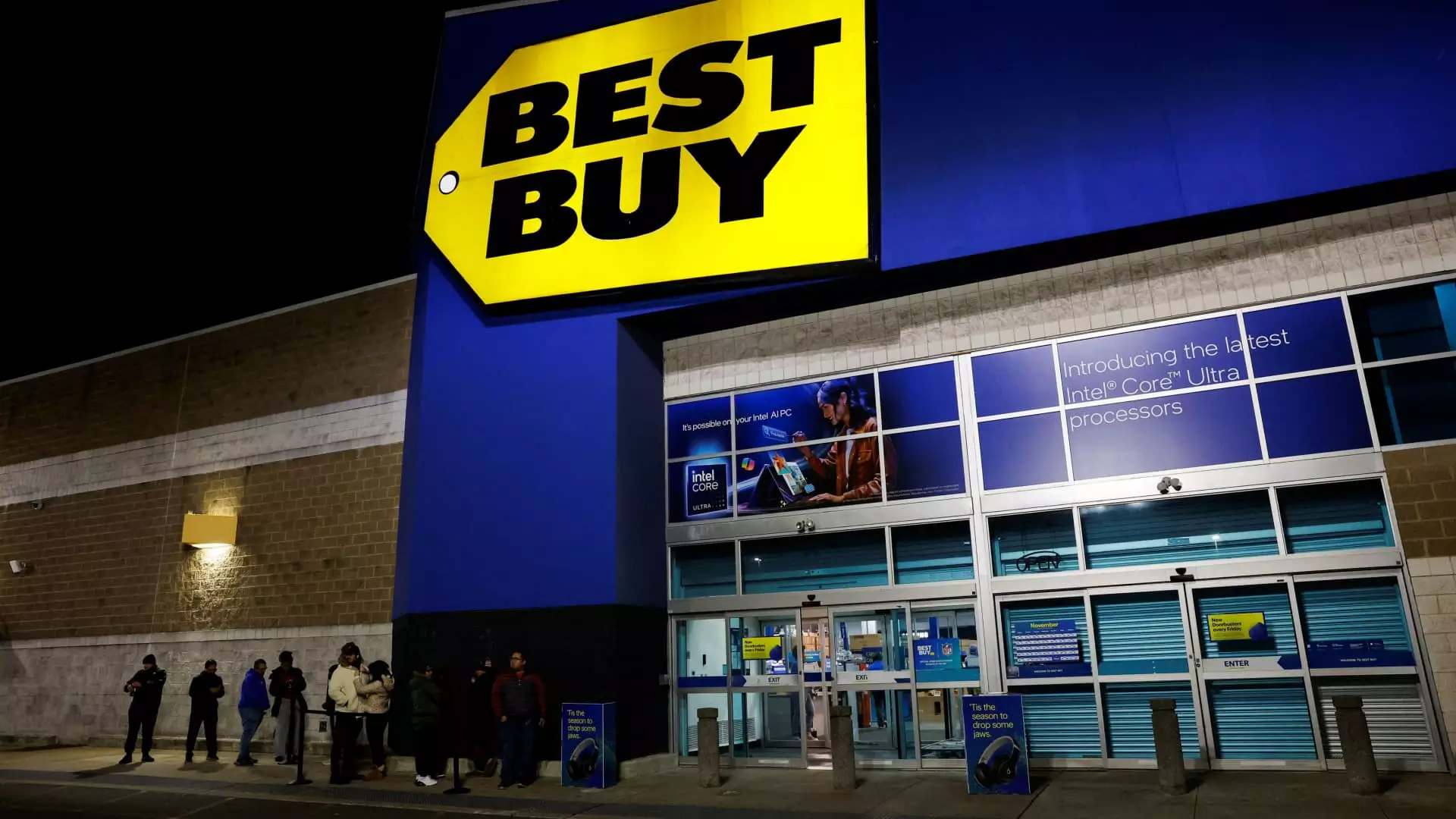The world of big technology is notoriously fickle, characterized by rapid fluctuations in value based on market sentiment and geopolitical narratives. Recently, shares of massive tech companies have witnessed a significant uptick as the U.S. and China took a decisive step in trade negotiations, opting to temporarily reduce tariffs. This collaboration—albeit precarious—has resulted in a dramatic decline in tariffs on Chinese imports, fixing the U.S. rate at 30%. In response, major players like Tesla and Amazon saw their stock rise by over 7% and 6%, respectively. It is perplexing that despite the ongoing scrutiny and competition from domestic firms, Tesla, which has faced mounting challenges in China, still managed to benefit from the development.
This is where I draw a line in the sand. Investing in tech stocks under these conditions seems reckless. The momentum may appear promising, but with China’s persistent political maneuvers and domestic companies closing the gap, one has to question the sustainability of such a spike. Why are investors willing to overlook potential pitfalls for short-term gains?
The Retail Revival
The ripple effect of the tariff agreement extended beyond tech, bolstering retailers viewed as vulnerable to Chinese imports. Resorts for brands that were at the mercy of a trade war saw stock prices rise dramatically. Companies like Best Buy and RH reported gains over 10%, signaling a keen recovery in consumer confidence. On the surface, these numbers may look reassuring, yet the underlying issues of supply chain complexities and consumer price sensitivity remain troubling.
Are we ignoring the potential consequences of a marketplace still heavily reliant on imports? This euphoria is laden with risk, representing a precarious balancing act that retailers must navigate amidst ongoing global economic uncertainties.
The Chinese Response: A Double-Edged Sword
Chinese companies listed in the U.S., such as Alibaba and JD.com, capitalized on the announcement, boosting their share prices substantially. While the relief from tariffs is a boon, it also shines a spotlight on the fragile nature of Chinese-American relations. The interdependence between these two economic giants carries not just promise but also significant risk. It raises an essential question: how much longer can this type of fragile economic cooperation endure? With domestic pressures intensifying in both nations, sustaining this relationship may prove more difficult than anticipated.
Pharma’s Price Predicament
Conversely, the pharmaceutical sector faced adverse reactions as President Trump revealed plans to drastically lower prescription drug prices. Stocks for giants like Amgen and Pfizer witnessed declines of over 2%, indicating that what boosts one industry can simultaneously jeopardize another. While the intent to lower prices is admirable, the implications for pharmaceutical innovation and investment are worrisome. Lower margins may deter essential research and development, which is crucial for future breakthroughs.
It often feels as if multifaceted policy decisions lack the foresight necessary for maintaining industry health while simultaneously catering to consumer demands. In this situation, it seems that the government’s pursuit of populist reforms may place long-term economic growth on the back burner.
Energy Sector Surges Amidst Acquisition
On a more positive note, NRG Energy experienced a robust surge, nearly 9% jump, following its announcement to acquire a substantial portfolio of natural gas generation facilities. This strategic move signals a proactive approach to diversifying energy sources, which could pay dividends in an increasingly competitive market. However, the question remains whether these rapid expansions are well-calibrated for sustainability or merely a reaction to immediate market pressures.
In a landscape fraught with volatility, the exuberance surrounding recent developments may be telling—there’s a sense of urgency within these sectors fueled by competition and shifting global dynamics. Are we truly prepared for the consequences, or are we merely placing bets in a high-stakes gamble?

